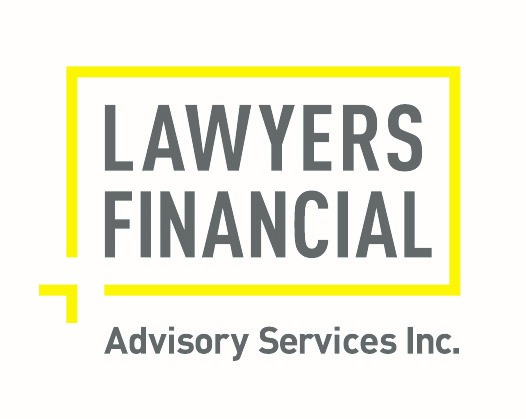
Lawyers Financial offers free financial planning services to every member of Canada’s legal community, including students and articling candidates. That means free advice from experienced professionals on insurance and investment products, and even tips on budgeting or student loan repayment. Did I mention it’s free? Too bad sometimes even free isn’t cheap enough. Because if you’re like me, talking openly about your personal finances is more daunting than a trip to the dentist. Here’s what happened during my financial planning session with Lawyers Financial Advisor, Michel Dugal. Spoiler alert: I lived to tell the tale.
Written by Frankie Barnet
You’re “bad” at money? So am I!
In fact, the idea that a stranger would look at my bank account was tantamount to one of those dreams where you show up to school naked. While I come from a middle-class family and have never suffered from food or housing insecurity, my income as a writer has always been low. For the sake of transparency, if it weren’t for federal CRB payments last year, I’d have been well below the poverty line. Things like homeownership, RRSPs, or stock market investments have never felt like they applied to me.
Before we even met with Michel, he sent my husband and me a Cash Flow Worksheet to track our income and expenses. I was horrified. But I was so squeamish about looking directly at all those dollar amounts ($1,500 on takeout!?), I almost missed the objective of the worksheet entirely, which was to show us which areas of discretionary spending we could reasonably cut back on. I realized that while we often think of financial planning only in terms of investments, stocks, or big purchases, like real estate, it doesn’t necessarily have to be so grandiose. Simply creating a balanced budget that works for your lifestyle is a huge step towards better financial health.
The idea that a stranger would look at my bank account was tantamount to one of those dreams where you show up to school naked.
Furthermore, I had always incorrectly assumed that I was bad at money just because I didn't earn very much, but the Cash Flow Worksheet helped me feel proud of myself for my ability to also spend remarkably little—less, in fact, than I was making. If you have more money coming in than you have going out, how can you be bad at it?
The $20,000 Elephant in the Room
While I was fortunate to have my parents support me through university, my husband took on around 20,000 USD in student loans to finance his undergraduate studies. Since we never really talk about it, this was the part of the meeting that started to feel like couples therapy. There are real questions: should we prioritize his loan payments over building our savings account or starting to invest? My husband took on the loans before we met (he wasn’t legally allowed to vote or drink alcohol either, for the record). How much of a role do I want to play in paying back this money?
But Michel understood the complexity—and ubiquity—of this issue. Student debt is something that affects an enormous amount of young people and there’s no one size fits all way to approach dealing with it. That’s why it was so helpful to have someone review our situation who doesn’t have an emotional stake in it. Michel explained that since we did have a couple hundred dollars left over in our budget each month, it actually made more sense to put this money towards investments, which might have higher returns than the interest rates on the loans, especially considering my husband’s loans are frozen until December 31, 2022. This way, the money we make on our investments can be put towards loan repayment in the future.
When the subject of investments came up, Michel was also respectful of our relatively low household income. While other financial planners might be dismissive of clients who are only able to make $100 monthly contributions to an investment fund, he remained enthusiastic about the fact that even smaller payments can make a huge difference over the long term due to the power of compound interest. “There’s no better time to invest than today,” Michel explained during our meeting. “If there were a better time, it would have been yesterday.”
All That Money Stuff Makes My Eyes Glaze Over (I’m Not Really Reading This Article, Just the Headlines)
Finance is really confusing and it’s pretty much impossible to keep up with all the acronyms. And while every industry has its own vocabulary and specialized knowledge that can feel more like a foreign language the further up you go, the difference with finance is that there’s no escape. The world of finance touches everything we do. So even if you feel like opting out, finance isn’t opting out of you any time soon. Almost romantic, isn’t it?
In our topsy turvy world (euphemism alert!) it's not unusual for the most resources to go to the people who need them the least. Think about celebrities every awards season with their grab bags of $500 shampoos, while in university you were scraping by with the five-dollar store brand. Finance is no different. Just as wealthy people can pay to have their assets managed professionally, lower income people don’t have the same access to opportunities to grow their wealth. That's why it's so important to take advantage of free services and education when they come your way.
I get it, money is weird. We all have at least one example of a time it’s made us feel really bad about ourselves, too. And it’s understandable when our reaction to that icky feeling is to shut ourselves off. Money’s toxic anyways, so it doesn’t matter if I take it seriously. And no amount of budgeting will turn my salary into Jeff Bezos’s, so why bother? The answer is because it’s not so black and white. While participating in things like financial planning might feel like you’re just giving into our culture’s unhealthy obsession with money, when done right it can have the opposite effect. There’s a lot of room between debt insomnia and super yachts. Somewhere in that vast gulf is you, worrying less and enjoying your life.
Book your free financial planning session now.
CBIA/Lawyers Financial is a not-for-profit organization that offers free financial planning to every member of Canada’s legal community. Ask how we can help you manage debt, invest with purpose, and build a budget that leaves room for living.
Sign up for more
Sign up for our newsletter to stay updated and receive upcoming blogs and similar content, tailored to law students and new lawyers, straight to your inbox.
Frankie Barnet is a Montreal-based writer whose new book, “Kim: A Novel Idea,” is available from Metatron Press.


